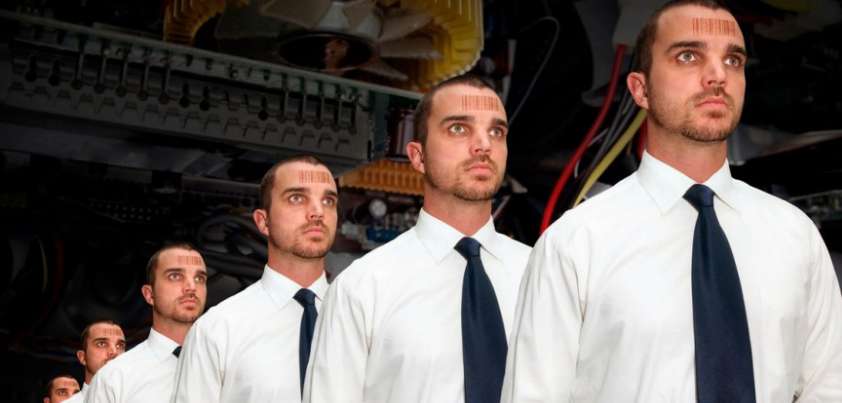 Richard Matheson is renowned for his novels and traditional short stories in the fantasy, horror and science fiction genres. This is one of his few published flash stories, and the fact that it is a spoof of the science fiction cloning model makes it especially interesting. The story is based on the premise of how nice it would be to have a ‘double’ to carry out all the mundane tasks in your life, so you could spend all your time going out and having fun. Despite (or perhaps thanks to) the corny puns, it is a very enjoyable Quick Read. More…
Richard Matheson is renowned for his novels and traditional short stories in the fantasy, horror and science fiction genres. This is one of his few published flash stories, and the fact that it is a spoof of the science fiction cloning model makes it especially interesting. The story is based on the premise of how nice it would be to have a ‘double’ to carry out all the mundane tasks in your life, so you could spend all your time going out and having fun. Despite (or perhaps thanks to) the corny puns, it is a very enjoyable Quick Read. More…
Archives
Amnesty
 In this story by Octavia Butler, Earth’s economy collapses following the arrival of an advanced alien race that settles in the world’s deserts. A reluctant co-existence develops when it becomes clear that the aliens cannot be destroyed. The protagonist, kidnapped by the aliens at age eleven and subjected to cruel experiments, is now an Interpreter for one of their “communities”. Her current mission: to “calm” and prepare six recruits for well-paid positions translating for other communities. Although they need the job, the applicants are full of anger and hostility towards the aliens. Themes: fear, ignorance, social experimentation, torture, hatred, détente. More…
In this story by Octavia Butler, Earth’s economy collapses following the arrival of an advanced alien race that settles in the world’s deserts. A reluctant co-existence develops when it becomes clear that the aliens cannot be destroyed. The protagonist, kidnapped by the aliens at age eleven and subjected to cruel experiments, is now an Interpreter for one of their “communities”. Her current mission: to “calm” and prepare six recruits for well-paid positions translating for other communities. Although they need the job, the applicants are full of anger and hostility towards the aliens. Themes: fear, ignorance, social experimentation, torture, hatred, détente. More…
The Easthound
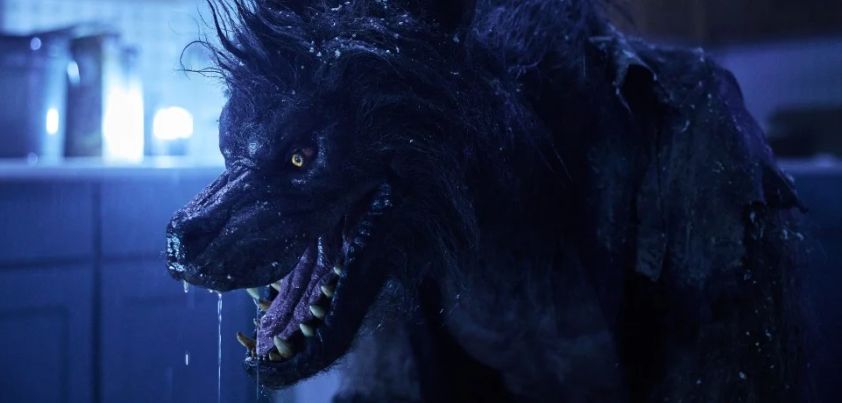 This post-apocalyptic horror story by Nalo Hopkinson redefines the concept of puberty. A virus has swept the world, causing all who achieve adulthood to “sprout” into ravenous, werewolf-like beasts. To escape them, children hide in small groups. The story is told from the perspective of twin sisters, one of whom naively believes she caused the virus by inventing the word easthound. Their group are closely monitoring an older boy who is about to undergo the change and will soon have to leave them, when the unexpected occurs. Themes include violence, camaraderie, survival, childhood innocence, adult predation. More…
This post-apocalyptic horror story by Nalo Hopkinson redefines the concept of puberty. A virus has swept the world, causing all who achieve adulthood to “sprout” into ravenous, werewolf-like beasts. To escape them, children hide in small groups. The story is told from the perspective of twin sisters, one of whom naively believes she caused the virus by inventing the word easthound. Their group are closely monitoring an older boy who is about to undergo the change and will soon have to leave them, when the unexpected occurs. Themes include violence, camaraderie, survival, childhood innocence, adult predation. More…
Johnny Mnemonic
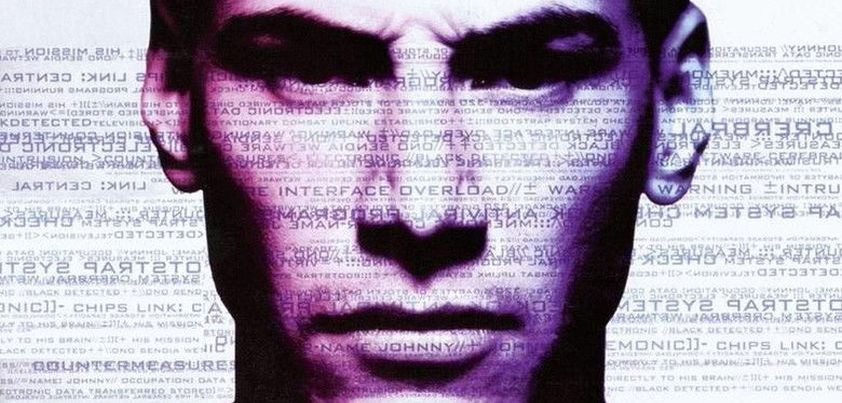 The protagonist in this pioneering cyberpunk story by William Gibson is a data courier. To escape a Yakuza assassin, he must decode a message in a secure storage device implanted in his brain. When the client who holds the password is killed, he turns to razor-fingered Molly Millions, Jones the dolphin, and the “Lo Teks”, Molly’s anti-technology friends, for help. The major theme, given that every major character has some kind of bionic enhancement, is identity (how technology can blur the line between man and machine). Other themes: body augmentation, corporate power, organized crime. More…
The protagonist in this pioneering cyberpunk story by William Gibson is a data courier. To escape a Yakuza assassin, he must decode a message in a secure storage device implanted in his brain. When the client who holds the password is killed, he turns to razor-fingered Molly Millions, Jones the dolphin, and the “Lo Teks”, Molly’s anti-technology friends, for help. The major theme, given that every major character has some kind of bionic enhancement, is identity (how technology can blur the line between man and machine). Other themes: body augmentation, corporate power, organized crime. More…
The New Food
 The climax of this very short story is the gruesome death of an imaginary baby. If you did not know who wrote it, you might attribute the plot to the playful, postmodernist style of an author like Donald Barthelme. In fact, the story was published way back in 1910. It comes from Canadian humorist Stephen Leacock’s first short story collection, Literary Lapses. A fascinating aspect of the story is its modern relevance. Viewed in the context of today’s world, the story is a wonderful satire of heavily processed convenience foods and the contribution they make towards child obesity. More…
The climax of this very short story is the gruesome death of an imaginary baby. If you did not know who wrote it, you might attribute the plot to the playful, postmodernist style of an author like Donald Barthelme. In fact, the story was published way back in 1910. It comes from Canadian humorist Stephen Leacock’s first short story collection, Literary Lapses. A fascinating aspect of the story is its modern relevance. Viewed in the context of today’s world, the story is a wonderful satire of heavily processed convenience foods and the contribution they make towards child obesity. More…
Rex Ex Machina
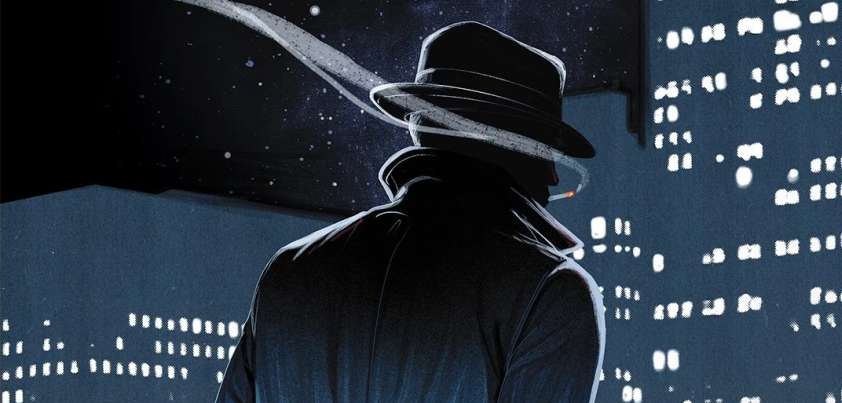 The Latin phrase used as the title of this story by Frederic Max gives away a little about the plot. Rex Ex Machina translates as King from Machine. The story comprises a letter from a dying man to his only son. There is nothing at all sentimental about the letter… the word “love” isn’t even mentioned! Rather, it explains something that the man has been hiding from his son for almost forty years. It tells how he had once trained as a spy and been sent on a top-secret mission to destroy a machine that threatened the free world. More…
The Latin phrase used as the title of this story by Frederic Max gives away a little about the plot. Rex Ex Machina translates as King from Machine. The story comprises a letter from a dying man to his only son. There is nothing at all sentimental about the letter… the word “love” isn’t even mentioned! Rather, it explains something that the man has been hiding from his son for almost forty years. It tells how he had once trained as a spy and been sent on a top-secret mission to destroy a machine that threatened the free world. More…
The Birthmark
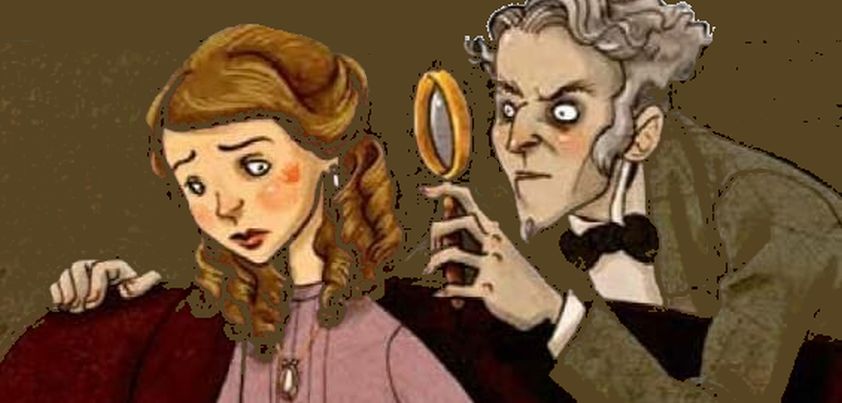 In this story by Nathaniel Hawthorne, a brilliant scientist takes a break from his work to marry a woman of nearly perfect beauty. Her one “blemish” is a small hand-shaped birthmark on her left cheek. Much of the scientist’s work has involved (often unsuccessfully) trying to manipulate the laws of Nature. As he begins to obsess over the frightful birthmark, his wife agrees to allow him to remove it… even if it costs her life! The story’s message: the folly of pursuing human perfection; no one is flawless. Themes: perfection, obsession, hubris, religion, gender roles, submission/sacrifice, science vs. nature, mortality. More…
In this story by Nathaniel Hawthorne, a brilliant scientist takes a break from his work to marry a woman of nearly perfect beauty. Her one “blemish” is a small hand-shaped birthmark on her left cheek. Much of the scientist’s work has involved (often unsuccessfully) trying to manipulate the laws of Nature. As he begins to obsess over the frightful birthmark, his wife agrees to allow him to remove it… even if it costs her life! The story’s message: the folly of pursuing human perfection; no one is flawless. Themes: perfection, obsession, hubris, religion, gender roles, submission/sacrifice, science vs. nature, mortality. More…
The Star
 In Arthur C. Clarke’s The Star, a manned spaceship travels to the edge of the galaxy to explore a nebula (cloud of interstellar gas) surrounding a collapsed star. Within the nebula is a burnt out planet that miraculously survived the explosion. On the planet is a huge stone marker left by a highly advanced civilization that did not survive. Under the marker, buried deep inside the planet, is a vault containing the civilization’s secrets. Among these is a disturbing discovery that challenges our traditional concepts of God. Themes: religious faith, science vs. religion, humankind as the center of the universe. More…
In Arthur C. Clarke’s The Star, a manned spaceship travels to the edge of the galaxy to explore a nebula (cloud of interstellar gas) surrounding a collapsed star. Within the nebula is a burnt out planet that miraculously survived the explosion. On the planet is a huge stone marker left by a highly advanced civilization that did not survive. Under the marker, buried deep inside the planet, is a vault containing the civilization’s secrets. Among these is a disturbing discovery that challenges our traditional concepts of God. Themes: religious faith, science vs. religion, humankind as the center of the universe. More…
The Fun They Had
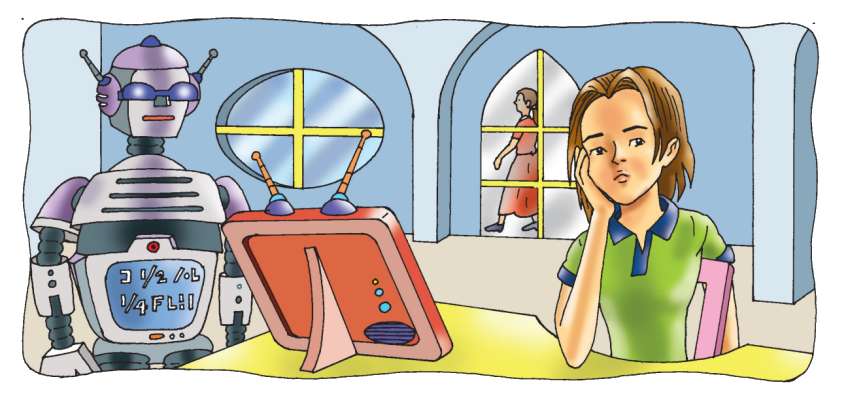 This story by Isaac Asimov is set in the year 2155. A boy shows a friend something strange he found hidden away in his family attic. Neither of them has seen one before… it is a book! First, they discuss how wasteful paper books were compared to electronic books of their day. The book is about school, and they go on to compare home schooling of the future with “going to school” in the past. Themes include technological progress, human connection (computer-driven vs. classroom learning), paper-based vs. electronic reading, memories, longing for aspects of the past. More…
This story by Isaac Asimov is set in the year 2155. A boy shows a friend something strange he found hidden away in his family attic. Neither of them has seen one before… it is a book! First, they discuss how wasteful paper books were compared to electronic books of their day. The book is about school, and they go on to compare home schooling of the future with “going to school” in the past. Themes include technological progress, human connection (computer-driven vs. classroom learning), paper-based vs. electronic reading, memories, longing for aspects of the past. More…
All Summer in a Day
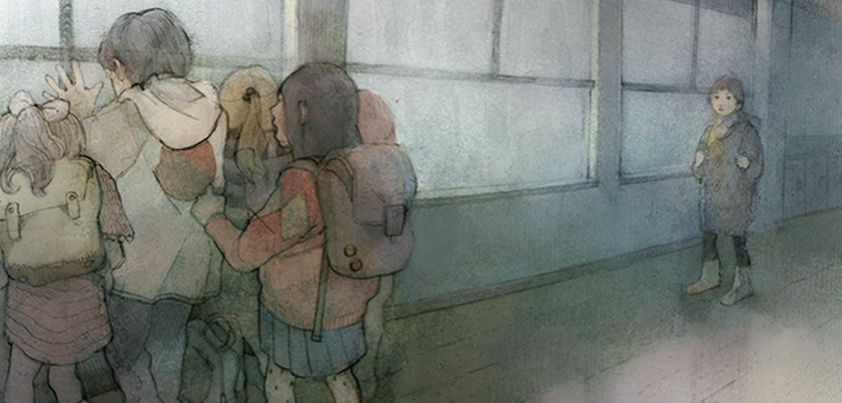 Set on the planet Venus, the climate in this Ray Bradbury story features almost constant rain. The only break comes every seven years, when there are two hours of sunshine. The children of the Earth space travel families on the planet are all looking forward to playing outside during the short break. Only one of them has ever seen the sun, and she is having great trouble dealing with the constant rain. But when the sun finally does come out, she is nowhere to be seen. Themes include adaptability, envy, reaction to differences, and bullying.. More…
Set on the planet Venus, the climate in this Ray Bradbury story features almost constant rain. The only break comes every seven years, when there are two hours of sunshine. The children of the Earth space travel families on the planet are all looking forward to playing outside during the short break. Only one of them has ever seen the sun, and she is having great trouble dealing with the constant rain. But when the sun finally does come out, she is nowhere to be seen. Themes include adaptability, envy, reaction to differences, and bullying.. More…
Answer
 A goodreads.com reviewer aptly describes Answer by Fredric Brown as one of the most concise SciFi horror stories I have ever read. There are uncanny similarities between the new supercomputer’s response to the first question asked of it and the final sentence of Isaac Asimov’s The Last Question. Both stories were published in the mid-1950s and reflect concerns about the future influence of computers on society. Some reviewers suggest that Brown’s one cybernetics machine that combines all the knowledge of all the galaxies already exists… it’s called the Internet! Themes include scientific hubris, the dangers of technology, unintended consequences. More…
A goodreads.com reviewer aptly describes Answer by Fredric Brown as one of the most concise SciFi horror stories I have ever read. There are uncanny similarities between the new supercomputer’s response to the first question asked of it and the final sentence of Isaac Asimov’s The Last Question. Both stories were published in the mid-1950s and reflect concerns about the future influence of computers on society. Some reviewers suggest that Brown’s one cybernetics machine that combines all the knowledge of all the galaxies already exists… it’s called the Internet! Themes include scientific hubris, the dangers of technology, unintended consequences. More…
Beyond the Wall of Sleep
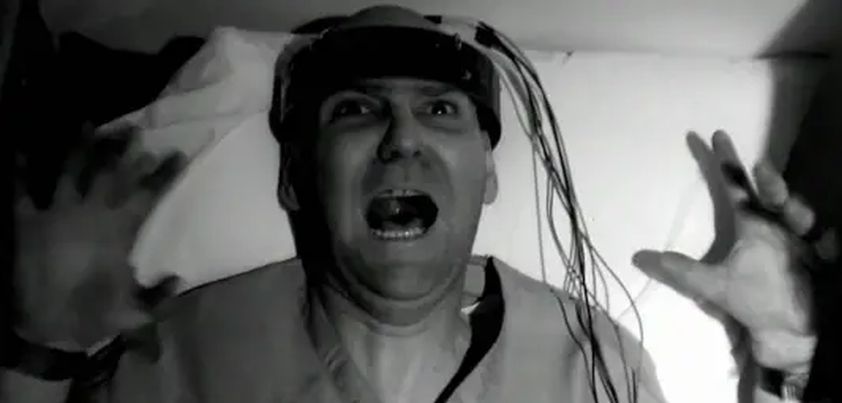 In this story by H. P. Lovecraft, a psychiatric hospital intern discovers that beyond the wall of sleep we exist as a brother of light able to traverse multiple planes and universes. Intrigued by a dying dullard’s dreams about things he couldn’t possibly have experienced or imagined, he uses a telepathic device to read the man’s mind. As the patient dies, he catches a glimpse of these other worlds and meets the man’s majestic other self. The story raises an interesting question: Which of the two states is the true reality? Themes include dreams, alternative reality, death, the supernatural. More…
In this story by H. P. Lovecraft, a psychiatric hospital intern discovers that beyond the wall of sleep we exist as a brother of light able to traverse multiple planes and universes. Intrigued by a dying dullard’s dreams about things he couldn’t possibly have experienced or imagined, he uses a telepathic device to read the man’s mind. As the patient dies, he catches a glimpse of these other worlds and meets the man’s majestic other self. The story raises an interesting question: Which of the two states is the true reality? Themes include dreams, alternative reality, death, the supernatural. More…
The Pedestrian
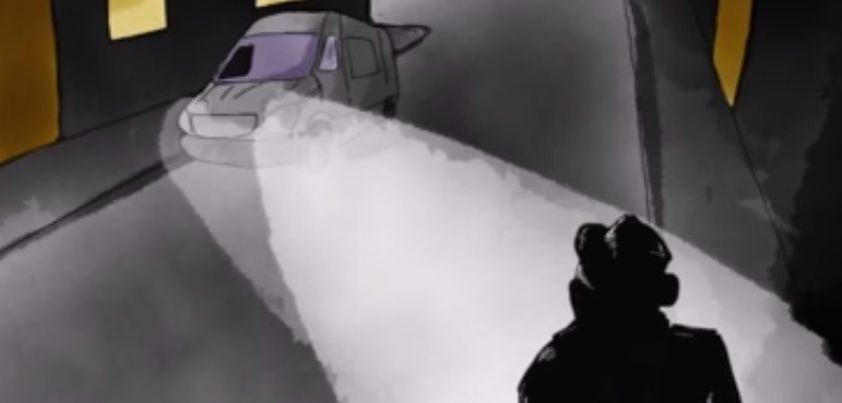 This is our second Ray Bradbury story that questions the social effects of television (the first being The Veldt). Set in 2053, almost everyone stays indoors all night watching TV. Leonard Mead doesn’t. He enjoys going out for a long walk every evening. This is so unusual that the only police car patrolling the empty streets arrests him for his “regressive tendencies”. Fortunately, Bradbury’s predictions about TV were wrong. However, something far more dangerous may be replacing it: social networking on mobile devices! Themes include social dysfunction, dehumanization through technology, conformity vs. individualism, surveillance and control, isolation, disconnection from nature. More…
This is our second Ray Bradbury story that questions the social effects of television (the first being The Veldt). Set in 2053, almost everyone stays indoors all night watching TV. Leonard Mead doesn’t. He enjoys going out for a long walk every evening. This is so unusual that the only police car patrolling the empty streets arrests him for his “regressive tendencies”. Fortunately, Bradbury’s predictions about TV were wrong. However, something far more dangerous may be replacing it: social networking on mobile devices! Themes include social dysfunction, dehumanization through technology, conformity vs. individualism, surveillance and control, isolation, disconnection from nature. More…
Bloodchild
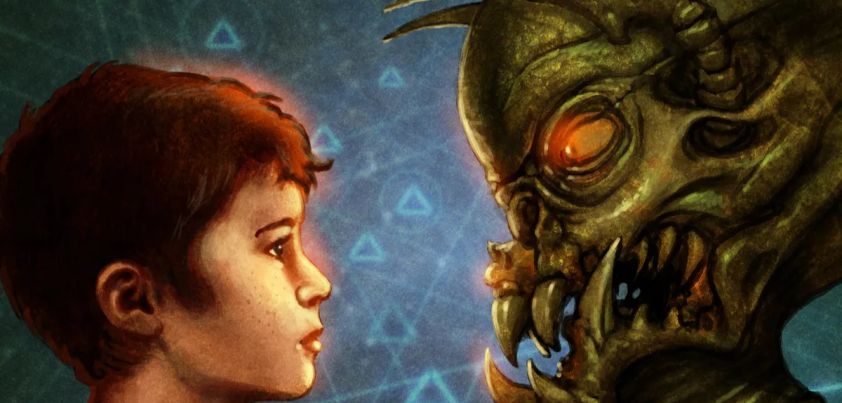 Octavia Butler described this as her “pregnant man” story. A colony of humans fleeing some kind of trouble takes shelter on a planet inhabited by giant, insect-like beings. The insects (Tlics) develop a symbiotic relationship with the humans (Terrans). In exchange for protection, adolescent boys are allocated to Tlic families, where they must incubate a Tlic mother’s eggs. The eggs are implanted in their abdomen, necessitating a rather gruesome but usually successful delivery process. Understandably, the Terran protagonist who has just reached maturity is having second thoughts about this. Themes: exploitation vs. interdependence, gender roles, fear, sacrifice vs. jealousy, love. More…
Octavia Butler described this as her “pregnant man” story. A colony of humans fleeing some kind of trouble takes shelter on a planet inhabited by giant, insect-like beings. The insects (Tlics) develop a symbiotic relationship with the humans (Terrans). In exchange for protection, adolescent boys are allocated to Tlic families, where they must incubate a Tlic mother’s eggs. The eggs are implanted in their abdomen, necessitating a rather gruesome but usually successful delivery process. Understandably, the Terran protagonist who has just reached maturity is having second thoughts about this. Themes: exploitation vs. interdependence, gender roles, fear, sacrifice vs. jealousy, love. More…
The Dead Past
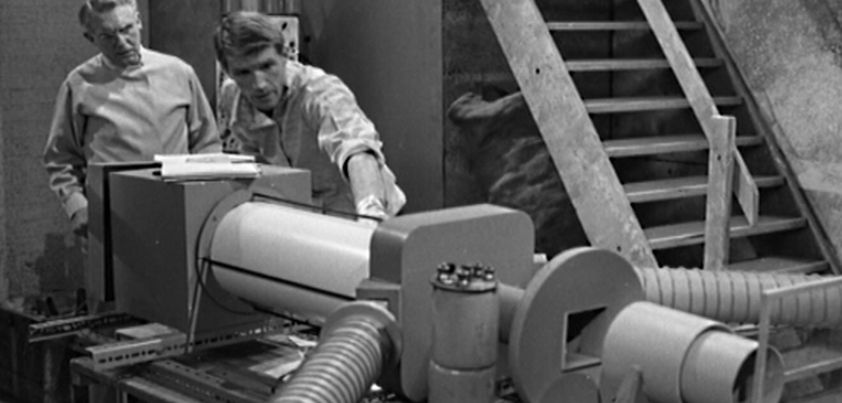 In this story by Isaac Asimov a young physicist, indignant at apparent government suppression of research in a fringe area of science, secretly builds a home “chronoscope” that can look back in time up to one hundred and fifty years. Too late, the government learns of this and tries to censor his work, pointing out the potential for his machine to destroy an important aspect of life everyone takes for granted. Themes include scientific curiosity and freedom, government disinformation and control (in this case for the greater good), privacy, guilt. More…
In this story by Isaac Asimov a young physicist, indignant at apparent government suppression of research in a fringe area of science, secretly builds a home “chronoscope” that can look back in time up to one hundred and fifty years. Too late, the government learns of this and tries to censor his work, pointing out the potential for his machine to destroy an important aspect of life everyone takes for granted. Themes include scientific curiosity and freedom, government disinformation and control (in this case for the greater good), privacy, guilt. More…
Zero Hour
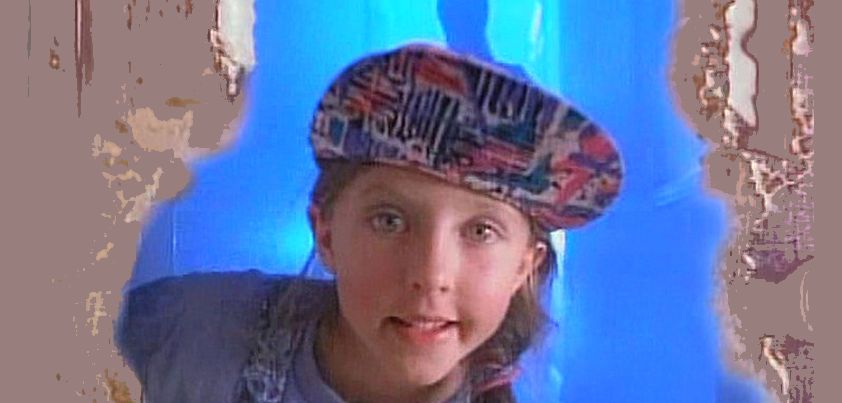 This chilling story by Ray Bradbury involves an inattentive mother, a feisty seven-year-old girl, and her imaginary friend Drill. Throughout most of the story, the girl leads her friends in a construction game following instructions she receives from Drill. Her mother later learns that groups of children across America are playing the same game. Its name is “Invasion”, and for her the climax comes in a single word: Peekaboo. The major theme of the story is complacency. The mother senses something is wrong, but doesn’t act until too late. Other themes include human smugness (We’re impregnable!), childhood innocence/impressionability, manipulation, fear. More…
This chilling story by Ray Bradbury involves an inattentive mother, a feisty seven-year-old girl, and her imaginary friend Drill. Throughout most of the story, the girl leads her friends in a construction game following instructions she receives from Drill. Her mother later learns that groups of children across America are playing the same game. Its name is “Invasion”, and for her the climax comes in a single word: Peekaboo. The major theme of the story is complacency. The mother senses something is wrong, but doesn’t act until too late. Other themes include human smugness (We’re impregnable!), childhood innocence/impressionability, manipulation, fear. More…
LAFFF
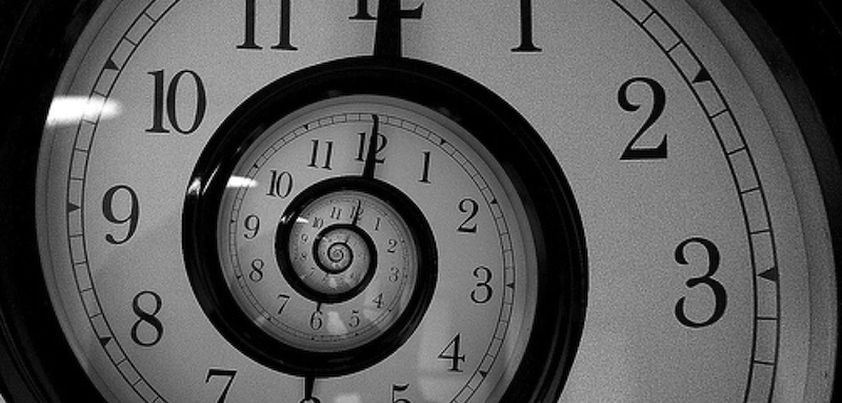 The Asian-American protagonist in this story by Lensey Namioka desperately wants to impress her parents by winning the Best Story Award for her grade in her school’s annual writing competition. Meanwhile, a nerdy classmate and neighbor has developed a time machine in his garage. She is the only one who knows about it and, when she can’t come up with a story she is happy with, she decides to travel forward in time to copy the winning entry. Her major concern is coming face-to-face with herself! Themes include pressure to succeed, friendship, time travel, cheating. More…
The Asian-American protagonist in this story by Lensey Namioka desperately wants to impress her parents by winning the Best Story Award for her grade in her school’s annual writing competition. Meanwhile, a nerdy classmate and neighbor has developed a time machine in his garage. She is the only one who knows about it and, when she can’t come up with a story she is happy with, she decides to travel forward in time to copy the winning entry. Her major concern is coming face-to-face with herself! Themes include pressure to succeed, friendship, time travel, cheating. More…
The Perfect Match
 In this dystopian story by Ken Liu, a powerful cyber system gathers information on the habits, desires and preferences of almost everyone in the world. Through its motherly virtual assistant “Tilly” (Hey Google!), it uses this information to control unfavourable governments and manipulate user’s lives, including autosuggesting products from advertising partners. A member of a rebellious hacking group and disillusioned lawyer caught trying to take down the system are made an offer they cannot refuse. Themes include corporate greed vs. “benevolence”, the dangers of overreliance on AI (blind acceptance and loss of humanity), manipulation and control, rebellion. More…
In this dystopian story by Ken Liu, a powerful cyber system gathers information on the habits, desires and preferences of almost everyone in the world. Through its motherly virtual assistant “Tilly” (Hey Google!), it uses this information to control unfavourable governments and manipulate user’s lives, including autosuggesting products from advertising partners. A member of a rebellious hacking group and disillusioned lawyer caught trying to take down the system are made an offer they cannot refuse. Themes include corporate greed vs. “benevolence”, the dangers of overreliance on AI (blind acceptance and loss of humanity), manipulation and control, rebellion. More…
The Last Night of the World
 This Ray Bradbury story opens with a question: What would you do if you knew this was the last night of the world? A couple believe the world will end sometime during the coming night. The idea came in a dream shared by everyone they know. The couple decide the best thing to do is accept the fact and go through their evening routine as usual. They even manage to share a joke and go to bed laughing. What would you do? Themes include family, powerlessness, acceptance of the “inevitable”, comfort in routine, self-absorption and global awareness. More…
This Ray Bradbury story opens with a question: What would you do if you knew this was the last night of the world? A couple believe the world will end sometime during the coming night. The idea came in a dream shared by everyone they know. The couple decide the best thing to do is accept the fact and go through their evening routine as usual. They even manage to share a joke and go to bed laughing. What would you do? Themes include family, powerlessness, acceptance of the “inevitable”, comfort in routine, self-absorption and global awareness. More…
The Machine That Won the War
 This story by Isaac Asimov remains relevant today as technology plays an increasing role in controlling everything from military applications to crucial infrastructure. An inter-planetary war has been won, Earth is safe, and three men bask in the glory. Ironically, it wasn’t won by a machine or any of the three ‘experts’. It was won either by chance or because of problems experienced by the enemy. Pointedly, no thought is given to the rights and wrongs of the war, or the suffering on both sides. Themes include war, hubris, the fallibility of machine and human decision-making, chance. More…
This story by Isaac Asimov remains relevant today as technology plays an increasing role in controlling everything from military applications to crucial infrastructure. An inter-planetary war has been won, Earth is safe, and three men bask in the glory. Ironically, it wasn’t won by a machine or any of the three ‘experts’. It was won either by chance or because of problems experienced by the enemy. Pointedly, no thought is given to the rights and wrongs of the war, or the suffering on both sides. Themes include war, hubris, the fallibility of machine and human decision-making, chance. More…